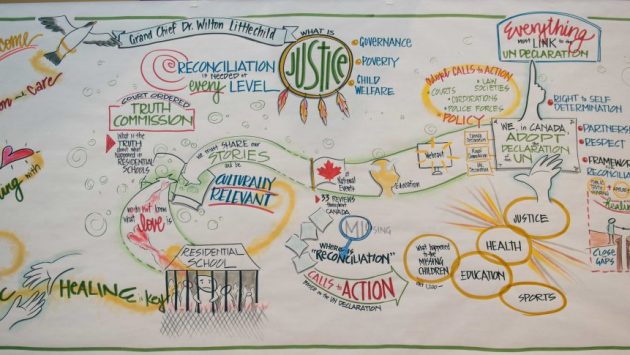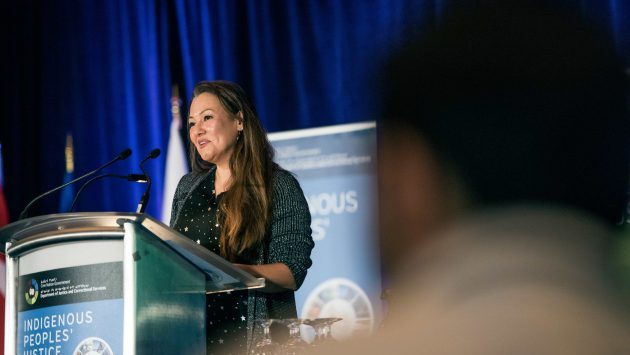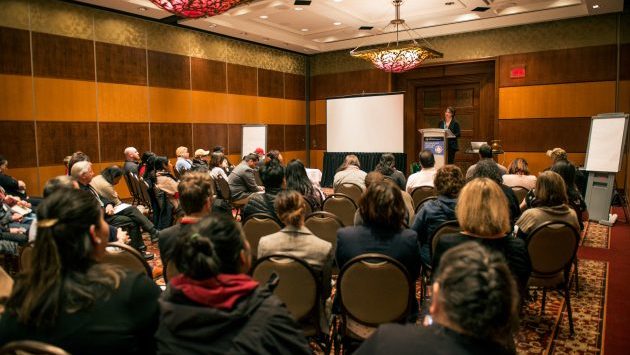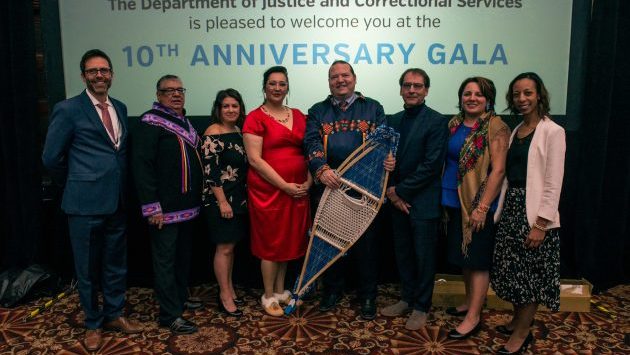Justice continues to be an elusive creature beginning when colonial powers first imposed their systems upon Indigenous peoples around the world
Justice continues to be an elusive creature beginning when colonial powers first imposed their systems upon Indigenous peoples around the world. In almost every case it seemed there were two justice systems – one for the colonizers who became the dominant society and one the Indigenous inhabitants who they believed required a “civilizing influence.”
The Indigenous Peoples’ Justice: Reconciliation and Capacity Building Conference hosted by the Grand Council of the Cree’s Justice Department – held December 4-6 in Gatineau – looked not only at the past and present relationships of justice that affect Indigenous peoples but what the future could bring. Director of Justice Donald Nicholls said that this gathering was about “inclusiveness and together we form a community that believes in justice.”
Welcoming everyone to the conference was Algonquin Elder Verna McGregor, who noted that Ottawa and the surrounding area remains her people’s unceded traditional territory. We may have heard this information before, but it needs to be said as often as possible until it is resolved justly. McGregor revealed her sense of humour when she stated that so many Algonquins were marrying Crees that they are starting to say they were All-gone-Cree.
Kenneth Gilpin did the opening prayer and preached tolerance saying that it didn’t matter which religion you were as long as you truly worshiped the Creator.
Cree Grand Chief Abel Bosum spoke about how the Cree Justice Department worked within the communities to ensure the well-being of all Cree. He talked about the Cree and non-Cree partners Justice teamed up with to meet the needs of the Cree in Eeyou Istchee. Among the examples Bosum pointed out were the justice centres, youth prevention programs, and the two Robin’s Nest women shelters.
Bosum said the conference was a forum to share knowledge, examine justice systems and to share ideas. He said that Nicholls was “instrumental in the development of the [justice] department for the past 10 years.”
Then he added that the justice department staff was to be honoured for the work they have done to date and the continuation in developing services and programs that will create safer and healthier communities. He hoped that everyone attending the conference would take up that challenge.
Dr. Manley Begay was the first Navajo to get a doctorate from Harvard University. As a faculty member of Northern Arizona University and co-director of the Harvard Project on American Indian Economic Development, he was perfect to discuss capacity building. Begay said that in order to succeed you have to know who you are. This means everything from culture, history, traditions and your way of life. Knowing these things about you and your nation will make you strong. You can’t have outsiders make decisions for you or on your behalf.
Begay added that infant mortality rates are often used as an indicator of the health and well-being of a nation. A 2018 Canada-wide study on national health inequalities found that infant mortality rates were 3.9 times higher in areas with a higher concentration Inuit people and 2.3 times higher in areas with more First Nations people. Canada infant mortality rate is 4.5 deaths per 1,000. At 10.35 deaths per 1,000 First Nations, rank 90th in the world.
Truth and Reconciliation Commissioner Grand Chief Wilton Littlechild said that there have been 33 justice reviews and commissions undertaken by the Canadian government. They resulted in over 3,000 recommendations and most of those saw no action or results. “We are still filling up prisons and youth detention centres. Justice still means just us [in custody],” said Littlechild. Since recommendations were being ignored, “we decided to use calls to action instead for our report.”
One workshop that interested a lot of people was the Child Welfare System with lawyer Mary Ellen Turpel-Laford. She said the current system was basically a colonial project designed to remove children from their parents and culture. “There are 27-28,000 children in the system that have been removed because First Nations people and/or the communities are somehow inferior.”
She signaled that there is a birth alert where children are “removed at birth by authorities without previous knowledge of the mother or family. This must end,” Turpel-Laford said.
Ontario’s Independent Advisor on Corrections Reform Howard Sapers was brutally honest. He talked about Adam Capay’s more than four years in solitary confinement.
“We asked how many Adam Capays there were? Nobody knew so we knew it was a problem,” said Sapers. “There is nothing benign about segregation.”
A four-person First Nation Elders Council was created to visit prisons but cannot currently meet due a general travel ban since the Ontario’s June 2018 election. Sapers was concerned that the “prison population is growing even though the crime rate is lower” than in the past.
Deputy Grand Chief Mandy Gull said justice has to include real healing and that would lead to “less Indigenous people in the correction system – and this is much needed at the moment. Real healing and less people in the correction system also means more people contributing to building our nation and our communities.”
Cree School Board Chairperson Sarah Pash said, “There are so many things relating to the justice system that really break my heart… Half of all youth admissions to correctional services are Indigenous youth while Indigenous youth make up only 8% of the Canadian population.”
Pash felt education was part of the problem and solution.
“Clearly, the consequences of not ensuring that all needs are met within a school system, that all young people are shown that they have a valued and important place, are devastating,” she said. “Devastating on the individual level, the community level, the nation level. Our youth, our communities are at stake. Collaboration and partnerships are the answer.”
Justice Director Don Nicholls said, “It was a team effort to create the justice system that reflects our way of life and that the Cree enjoy today. It is something that will continue to grow. We anticipate greater participation and roles throughout the community in the present and the future.” Adding, “I remember a philosophy law professor told me when I entered law school, going to law school doesn’t mean you have to practice law but those who understand the system and how it works in this country have the ability to make great changes.” Nicholls hoped what people have learned from the conference would help them on their journey.
The conference was not advertised but after a few invitations to key people and organizations were sent out the grapevine did the rest. Many people began calling and saying they wanted to or would attend. Those who did, encouraged Nicholls to hold another one. The Cree Justice Department is still receiving calls from people and organizations. Rumour has it that the next one will take place in February 2020. Early next year videos of some of the panels and workshops will be available on the www.creejustice.ca website.









